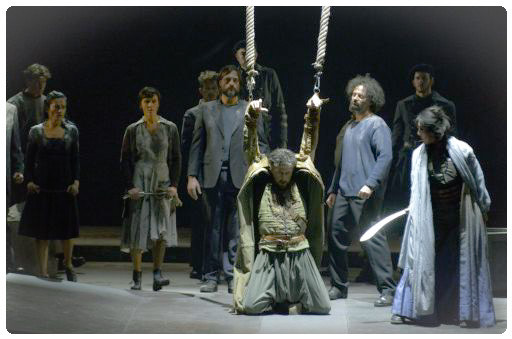

They will be thrown back on their original sorrows: he on an anguished relationship with his father now made even more torturous, she on her inconsolable grief at separation from her native land and the world of childhood. Their story thus is essentially over from the start whatever they were looking for in each other will not be found or even properly defined. A contradiction is made audible in the clash of chorus against solo voices: what for the chorus marks the return of peace for Elisabeth and Carlos is the end of hope. As Elisabeth affirms, under pressure, the opposite of what she feels, wispy possibilities reverse into implacable realities. It clears an area of silence around the syllable forced out “with a dying voice” (according to the score’s specification), a tone caught perfectly by Yoncheva at this early pivotal moment. The pause-punctuated by three widely separated pizzicato chords-feels like a chasm. She has at least in theory the opportunity to say no, and there is a pause before-surrounded by Frenchwomen pleading for an end to the war-she answers with a faint Oui. There is only one formality: Philip has sent word he will only marry her if she assents. A chorus rejoices while the shocked pair sing of death and the abyss. It is shattered immediately by news that the peace agreement stipulates that Elisabeth marry not Carlos but his father, Philip II (Eric Owens). Their celebration has an almost frantic haste, appropriately since this is the first and last glimpse of happiness or freedom that will be afforded them.

Within moments, once the situation has been suitably clarified, they surrender to the elation of an instantly discovered mutual love. She, lost in the woods and not yet aware of his identity, “afraid of the unknown,” is about to be married off as part of a diplomatic settlement to a drawn-out conflict between Spain and France-a war trophy exiled to a foreign court. Don Carlos (Matthew Polenzani) has come from Madrid surreptitiously, braving his royal father’s anger, and, having merely glimpsed his promised bride, Elisabeth de Valois (Sonya Yoncheva), has fallen in love. They have never met, although they are engaged to be married.

Two strangers encounter each other in the woods of Fontainebleau. In retrospect it makes the setting of the four remaining acts-the Spain of Philip II in 1560-an even more hermetically sealed place of detention. Perhaps that separateness accounts for its being so frequently omitted as inessential, although the loss seems drastic: in the Met’s persuasive and powerful new production, this prelude seems the indispensable glimpse of a world elsewhere, whose possibilities are never to be revisited. The elements of its setting-a forest in winter, a fire kindled in the wilderness, a starry sky-have a poetic openness not to be found in the sterner scenes toward which the story is headed. The first act of Verdi’s Don Carlos is almost an opera in itself: in a matter of minutes the prospect of a happy destiny is born, blooms, and dissolves.


 0 kommentar(er)
0 kommentar(er)
